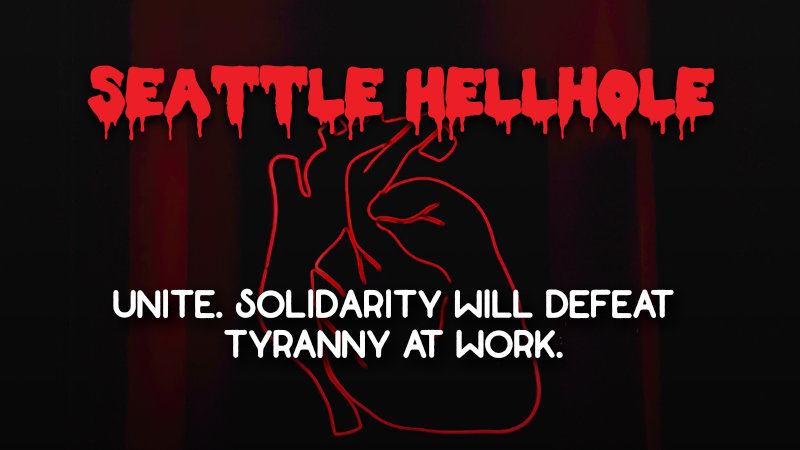Caregivers invisible no more as Washington funds long-term care.
Washington State’s Long Term Care Trust Act is just a start, but it’s a worthy one. The fund is a modest, flat payroll tax which, absent capital gains or progressive income tax in our regressive state, will accrue up to $36,500 for workers for long-term care. The pot will theoretically grow older as you do. It protects elders who built this state or just any member of the community who needs assistance.
The funds can be used for accessibility devices and modifications to housing: ramps, shower rails, etc.. It can also be used to compensate a caregiver. What’s understated is how a coalition or organizations fought to ensure there’s a broader definition of caregiver. Long-term caregiving is often underpaid or unpaid, and workers suffer from weakened labor and disability protections (esp. for family caregivers). Caregivers are often womxn of color and immigrants.
While this is a step forward for caregivers, today the Center for Medicaid and Services issued a rule that will make it illegal for caregivers to have their union dues deducted from Medicaid funds directly (which is how a majority of home healthcare workers get paid).
It’s another blow against unions at the federal level, and the kind of thing that makes a job in home care consistently undervalued. We’ll need nearly 8 million caregiver jobs to be filled by 2026. Attacking workers’ rights, wages, and benefits is not the way to make that happen.
Mayor Durkan tells bikes to hike
A recent study found out that people in Seattle who travel by bicycle prefer not to die in unprotected bike lanes. Meanwhile, Mayor Durkan curbed miles of bike lanes from the city’s master bike plan. Buddy, where we’re going, we don’t need f’in masters. What people need are fast, reliable ways to get to work.
It would be great to 1) actually be able to live in the city we work, 2) travel in protected bike lanes in a pedestrian and mass transit-only urban core, and, 3) actually have fast, reliable, frequent mass transit, like bullet trains, to cover long distance commutes. But in Seattle, everything takes a back seat to cars and the NIMBYs that love them.
The people unambiguously want housing and breezy, reliable, accessible, and frequent connection from point A to point B. All the uber-lite rides in South King County don’t fix that.
What to do? Be sure to show up and “join the conversation” around SDOT’s planning process for protected bike lanes. It’s a start, but we’ll be damned if more isn’t possible. It’s time we stood together and demanded it.
Crane tragedy underscores tragedy for trades in Seattle
The deaths of four after a crane collapse, including two workers at the site, is a tragedy. Full stop. Trade workers in Seattle are eking out a meager existence. Even an union ironworker’s job is barely enough to make it in the metro area. Workers take longer shifts, side jobs, split flats with others, and work at other sites on their days off. Many workers feel pressure to pay for healthcare (if not provided through a union contract) or give up their own care to afford their kid’s. Those conditions aren’t right. It’s not right that the workers who build this city find themselves economically exiled from it.
IUOE 302, which represents many crane operators, went on strike last summer to force bosses to come to the table and offer better pay but also safer worker conditions. They called it. Workers know when it’s getting too dangerous.
Ironworkers Local 86 through Iron Workers Credit Union has set up a fund to help safeguard the workers’ families. Consider donating.
May Day protests herald Red May
Overall, U.S. productivity grew 3.6% this quarter, a four year high while whole labor costs fell 0.9%. Translation: your boss got richer but we did not. Automation may be inevitable but it could be harnessed to make work safer and shorter. Instead it’s being used in tandem with AI to automate layoffs and enforce ever-longer, more intense hours.
This May Day, workers around the world from colectivos in Venezuela to Amazon security workers in Seattle, demanded better for themselves and their coworkers, neighbors, and comrades.
May Day in Seattle also signals Red May, the month-long symposia of events, from DIY scene workshops, to lectures, to debate, and more all demanding alternative forms of ownership to the capitalist model of private tyranny and theft from the commons. Check out the Red May calendar for a comprehensive list of activities this month.
Seattle can be both a city for the many and a city for the marginalized. We can shake off the years of propaganda by capitalists and demand a shared future, one free of need and, oftentimes, free of want. We can, as Percy Bysshe Shelley wrote:
“Rise, like lions after slumber
In unvanquishable number!
Shake your chains to earth like dew
Which in sleep had fallen on you:
Ye are many—they are few!”
Note: The Seattle Hellhole represents the views of its writers and does not represent official positions of Seattle DSA at large. Its writers are a collective working on independent pieces, editing, and design to deliver this each week. If you want to volunteer, join us in #wg_comms_design on Slack or email [email protected]
